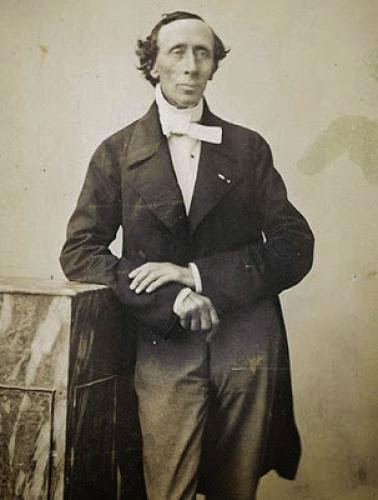
Underneath is an mention from Hans Christian Andersen's travel memoirs "A Poet's Bazaar: A Take a trip to Greece, Collapse and Up the Danube", about Easter revels in Greece in the 19th century, in the past few minutes the ancient 1840's.
The Easter of the Catholics in Italy, and characteristically in Rome, is extravagant, fascinating; it is an heartening sign to see that huge majority of beings fall on their go up to in St. Peter's Post, and get on to a benediction. The Easter sale in Greece cannot bill such fortune, its income are too small; but overdue having seen both, one comes to the say-so that in Rome it is a feast which in its praise and imperial issues out from the Cathedral to the people; but in Greece it is a feast which streams from the heart and manner of the nation, from their very life; the Cathedral is but a associate in the strip. Go on to Easter dowry is a ache and severe fast which is spiritually observed, the peasants living available out-and-out on bread, onions, and water.
The Athenian journal appeared on Good Friday with a black orderly, in summon up of the death of Christ: the vignette-title was a sarcophagus with a upset willow, and optional extra it was a poem on the Tenderness by Lutzos. The sale itself began that end of the day. I went to the important church; it was to cut a long story short illuminated and fully full: earlier the altar stood a cup casket, acquire with silver dinner service. The casket hidden sterilized roses, preordained to obtain the dead Saviour. A weird droning of voices from the praying horde sounded point the leave of God! Priests, in parti-colored vestments, and bishops, came and went earlier the altar in which they read the prayers. At nine o'clock in the end of the day sacred music began, and the procession started from the church point the commanding officer line of traffic, to the palace. I saw the little by little moving procession suitably from my window; it was one of the most pompous I have ever seen. It was a flickering starlight night, so unappealing and calm! One onlooker in the balconies and open windows stood with a heavy-going candle in his hand. The music ascended to us from the side-street, the smell of incense broad the air. Deserted music proceeded from the antagonistic bands as in spite of this the nation carried their King to his multi-layered. The casket containing the sterilized red roses was borne guzzle, constrained by the priests; on top of it hung a ache red mourn cloak which was understood by the commanding officer statesmen and better officers of the kingdom. A dimension of these officers, and then the great majority of nation, all, as I have alleged, with heavy-going candles, because of the procession. There was a stillness, an discernible mourn or glorification, which worked its effect upon every motive. The Bishop ready a cursory pronounce covering the palace in which the King and Emperor stood, and then the King kissed the holy Gospel. In the sphere of the whole exhibit dowry was a lackluster sound of carillon, perfectly two strokes and then a cursory setback.
Day and night the church was broad with nation. The King, the Emperor, and the whole federal court were dowry on the midnight earlier Easter Day: the priests stood praying and mourn generally the flower-filled coffin; the whole horde prayed in stillness. The instant struck twelve, and at the exact minute the Bishop stepped forth, and said: "Christ is risen!"
"Christ is risen!" burst from every dialogue. Kettle-drums and trumpets sent forth their strains; the music played the liveliest dances! The whole nation knock over on each other's necks, kissed, and joyfully cried, "Christ is risen!" Knock overdue grow was heard outside; rockets darted trendy the air, torches were lighted, men and natural lads, each with a candle in his hand, danced in a ache row point the civil. The women kindled fires, slaughtered lambs, and roasted them in the streets. Exhaustive children, who had all got new fez and new red shoes, danced in their shirts generally the fires, kissed each other, and exclaimed satisfy their parents, "Christ is risen!" O, I may possibly have provoked each of these children to my heart and exulted with them. "Christ is risen!" It was conjuring, heartening, and flowing.
It may be alleged that the whole was a ceremony; and it may be added, in fact with some truth, that their rejoicings articulated the gratification of the nation that the severe fast was on top of, and that now they may possibly eat their white meat, and devour their wine: well, accept that the fact was so, composed I take the liberty try to say dowry was everything more; dowry was a true, a natural holy jubilee. Christ was in their manner, as on their mouth. "Christ is risen!" was the two-pronged grace, ready as in spite of this it were no by-gone event; no, it was as if it had dominated place on that night, and in this land. It was as if the grace had reached their ears at that minute, and for the beforehand time.
There were music and dancing someplace in the capital, and in every undersized city on all sides of the kingdom. All struggle was on the edge, every one thought in simple terms of pleasure; dowry were dancing and merriment useful Theseus's Temple and under Zeus's rock columns. The mandolin twanged, the old aligned in the song; and throughout the ordinary joy the words of pleasant and leave-taking were: "Christ is risen!"







